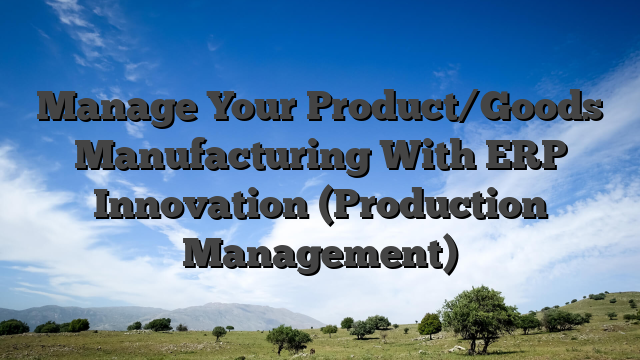Efficient digital asset management Singapore has become a cornerstone for businesses aiming for operational excellence. As companies increasingly rely on technology for day-to-day functions, the task of managing these assets effectively looms larger. The scope of IT hardware asset management (ITAM) extends beyond mere tracking of physical assets.
It encompasses cost management, regulatory compliance, resource optimization, and security protocols. Failing to manage IT assets proficiently can lead to unnecessary expenditures, security vulnerabilities, and non-compliance with regulations. Understanding the challenges that accompany ITAM and finding viable solutions is paramount.
The Importance of IT Hardware Asset Management
Cost Efficiency
One of the foremost benefits of effective digital asset management in Singapore is cost efficiency. Simply put, knowing what you have and how it’s being used helps avoid redundant purchases and wastage. Moreover, it empowers you to negotiate better contracts, especially when you have a comprehensive understanding of your assets.
Regulatory Compliance
Compliance with laws and industry standards is another critical area that ITAM impacts. For instance, software licenses need to be managed to prevent legal repercussions. Similarly, there may be data protection rules that your hardware systems must adhere to.
Resource Optimization
When you know exactly what’s in your hardware inventory, allocation becomes a streamlined process. This way, you don’t end up with idle resources, ensuring that every asset is utilized to its full potential.
Security and Risk Mitigation
Last but not least, IT hardware asset management plays a pivotal role in your organization’s security posture. A well-managed IT asset inventory allows you to quickly identify and rectify potential vulnerabilities, thereby enhancing your risk mitigation strategies.
Common Challenges in Digital Asset Management in Singapore
Lack of Visibility
Without a clear picture of what assets, you have and where they are, planning becomes a shot in the dark. This can result in resource wastage and can increase operational inefficiencies.
Un-optimised Costs
Direct and Indirect Costs: Un-optimised costs manifest in several ways. Direct costs involve outright purchases and maintenance. Indirect costs could involve downtime due to malfunctioning or incompatible hardware.
The Standardization Solution: A unified approach to hardware purchasing and maintenance can prevent compatibility issues, eventually helping to bring down costs. Standardization across the board ensures that your team knows how to operate and troubleshoot the systems, leading to reduced downtime and improved efficiency.
Scalability Issues
The Need for Adaptive Practices: As your business scales, your IT hardware asset management practices need to adapt. Often, the systems and processes that worked for a smaller operation won’t suffice as you grow.
Forward and Backward Scalability: When we talk about scalability, it’s not just about expanding. Sometimes, you may need to scale down, and your ITAM practices should be flexible enough to accommodate this without creating bottlenecks or redundancies.
Security Risks
Identifying Gaps: Poor ITAM makes it challenging to identify security vulnerabilities. Outdated systems, lack of patches, and unauthorized assets can all be ticking time bombs.
The Patch Management Angle: Regular updates and patches are a simple yet effective way to mitigate security risks. This involves maintaining an up-to-date inventory and ensuring that all updates are uniformly applied.
Compliance Concerns
Industry-Specific Regulations: Depending on your industry, there may be stringent regulations governing your IT assets. Failing to comply can result not only in financial penalties but also in reputational damage.
The Audit Aspect: Regular audits can be your best friend when it comes to compliance. They not only help identify non-compliance but also offer a roadmap for achieving full compliance.
Efficient Solutions to These Challenges
Implementing Asset Management System Software
Features to Consider: Automated ITAM solutions can significantly alleviate many of the challenges mentioned above. Key features to look for include real-time tracking, cloud-based architecture, and user-friendly dashboards.
The Automation Advantage: Automated tracking eliminates human errors, reduces administrative overhead, and enables faster, more informed decisions.
Conducting Regular Audits and Reviews
The Frequency Factor: The frequency of your audits should align with your business needs. For dynamic industries, quarterly audits may be required. On the other hand, annual reviews may suffice for more stable sectors.
The Checklist Method: A well-defined checklist can streamline your audit process, making sure no asset or compliance requirement is overlooked.
Implementing a Scalable IT Hardware Asset Management Strategy
A comprehensive ITAM strategy considers both business growth and contraction scenarios. Incorporate flexibility in your planning so that you can scale your asset base up or down without significant disruptions.
Vendor Management Best Practices
Establishing long-term relationships with vendors can provide several benefits, including better pricing and more favourable terms. Cultivate these relationships and keep open lines of communication for mutual benefit.
Read More – Medical equipment asset management
Security Protocols and Measures
Hardware and Software Measures: Incorporate both hardware and software security measures. Firewalls, encryption, and antivirus software should be part of your security arsenal.
Access Control: Controlling who has access to what is another cornerstone of ITAM security. The fewer people who have unrestricted access, the lower the security risk.
Implementing Lifecycle Management
Understanding your assets from the procurement stage to disposal can offer insights into their actual costs and how efficiently they are being used. This is vital for both cost control and sustainability.
Training and Internal Policies
The Training Imperative: An ITAM strategy is only as good as the people implementing it. Regular training sessions ensure that your team is up to date with best practices and any regulatory changes.
Internal Policy Guidelines: Craft a set of internal ITAM policies to ensure that everyone is on the same page. Regularly update these policies to reflect any changes in regulations or business operations.
Conclusion
IT hardware asset management is far from simple, but the challenges are not insurmountable. By implementing strategic digital asset management Singapore solutions like automated tracking, regular audits, and staff training, you can manage your IT assets more effectively. Your organization will reap the benefits in terms of reduced costs, better compliance, and enhanced security.
Remember, effective HAM is an ongoing process. Continuously evaluate your procedures and adapt to changing technology and business needs. With a well-managed IT hardware ecosystem, your organization is better positioned for success in today’s rapidly evolving digital landscape.




